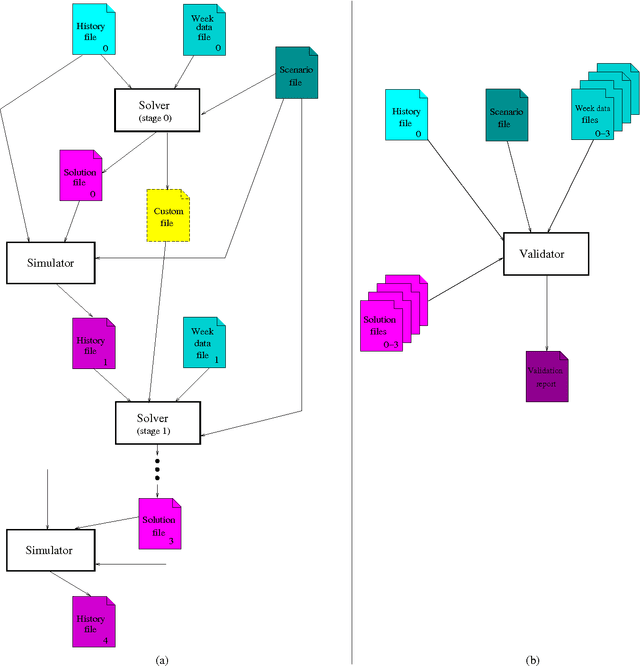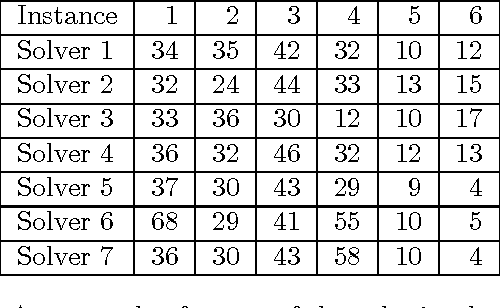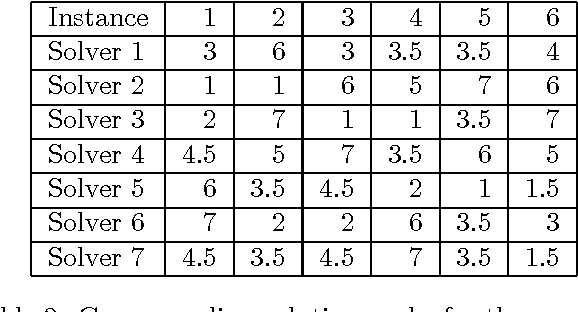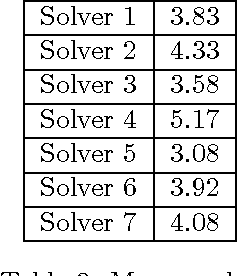Nguyen Thi Thanh Dang
Characterization of neighborhood behaviours in a multi-neighborhood local search algorithm
Mar 12, 2016



Abstract:We consider a multi-neighborhood local search algorithm with a large number of possible neighborhoods. Each neighborhood is accompanied by a weight value which represents the probability of being chosen at each iteration. These weights are fixed before the algorithm runs, and are considered as parameters of the algorithm. Given a set of instances, off-line tuning of the algorithm's parameters can be done by automated algorithm configuration tools (e.g., SMAC). However, the large number of neighborhoods can make the tuning expensive and difficult even when the number of parameters has been reduced by some intuition. In this work, we propose a systematic method to characterize each neighborhood's behaviours, representing them as a feature vector, and using cluster analysis to form similar groups of neighborhoods. The novelty of our characterization method is the ability of reflecting changes of behaviours according to hardness of different solution quality regions. We show that using neighborhood clusters instead of individual neighborhoods helps to reduce the parameter configuration space without misleading the search of the tuning procedure. Moreover, this method is problem-independent and potentially can be applied in similar contexts.
Second International Nurse Rostering Competition (INRC-II) --- Problem Description and Rules ---
Jan 17, 2015



Abstract:In this paper, we provide all information to participate to the Second International Nurse Rostering Competition (INRC-II). First, we describe the problem formulation, which, differently from INRC-I, is a multi-stage procedure. Second, we illustrate all the necessary infrastructure do be used together with the participant's solver, including the testbed, the file formats, and the validation/simulation tools. Finally, we state the rules of the competition. All update-to-date information about the competition is available at http://mobiz.vives.be/inrc2/.
 Add to Chrome
Add to Chrome Add to Firefox
Add to Firefox Add to Edge
Add to Edge